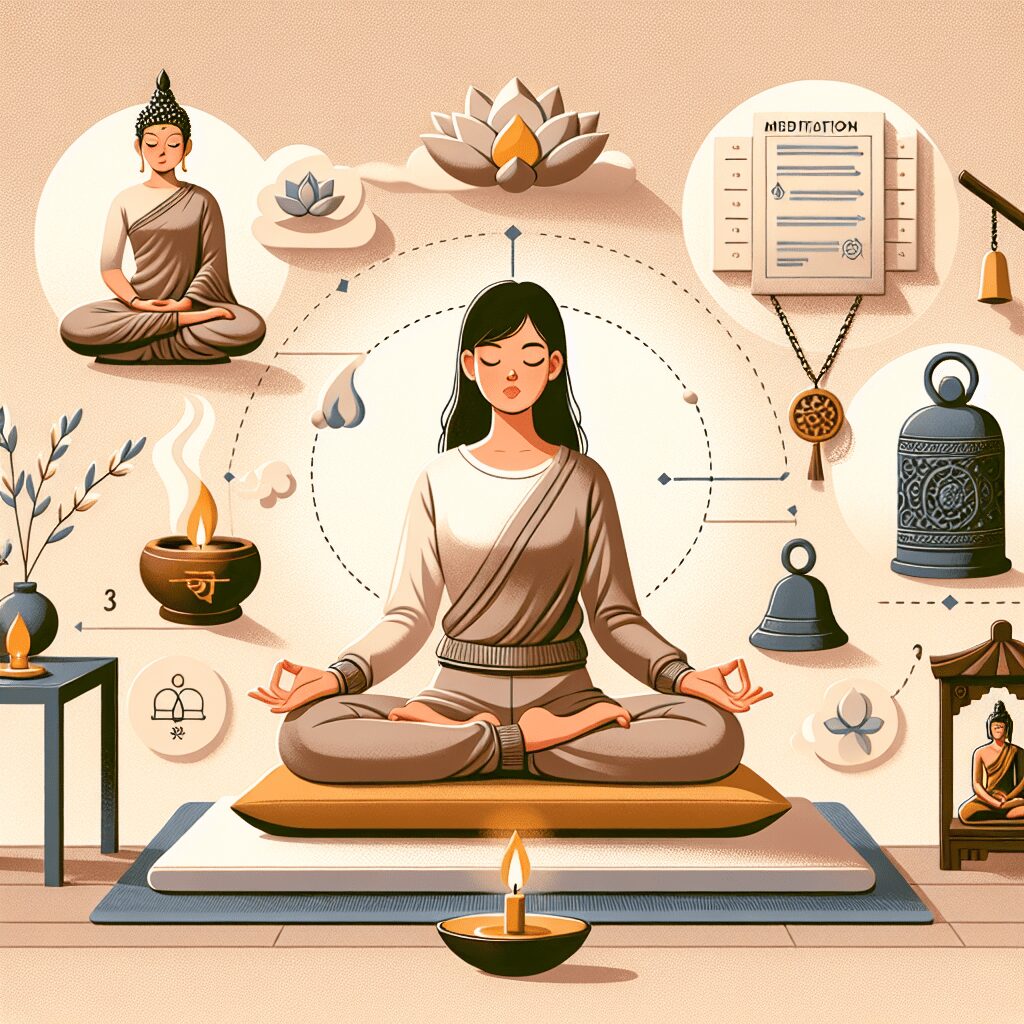
Prioritize your mental well-being daily. Enhance your life by nurturing your mental health with the Smart Meditation app. Break free from stress, alleviate anxiety, and enhance your sleep quality starting today.
Questions The Theperist Should Ask After Meditation?
Unlocking the Greater Potential: The Essential Dialogue Post-Meditation
In the ever-evolving quest for self-improvement and inner peace, meditation has been hailed as a cornerstone practice. Far from being a mystical ritual accessible only to the spiritually elite, it has woven itself into the fabric of everyday wellness routines. However, the journey doesn’t end as one steps off the mat or cushion; it’s what comes after that can significantly amplify the benefits. Yes, we’re talking about the art of questioning –a post-meditation dialogue with oneself. Let’s dive into those pivotal questions that act as keys to unlock deeper understanding and foster a profound connection with our inner landscape.
Cultivating Insight: Questions to Ask Yourself
After a session of tranquil meditation, your mind is like a serene lake – calm and reflective. That’s the perfect time to drop in some insightful pebbles and watch the ripples expand your self-awareness. Here’s a compilation of thought-provoking queries to jump-start this process:
-
What sensations were most prominent during my practice? Delving into the physical sensations (or lack thereof) can provide clues about your current state of being. Were there areas of tension or discomfort? Or perhaps a pleasant lightness? It’s all invaluable data for tuning into your body’s wisdom.
-
Which emotions bubbled up to the surface? At times, meditation can feel like uncorking a bottle, allowing pent-up emotions to effervesce. Identifying these feelings without judgment enhances emotional intelligence and resilience.
-
Where did my mind wander, and what does that reveal? Let’s face it, the mind loves a good wander—it’s part of the human condition. Observing where it goes can unveil underlying concerns or values that might be asking for your attention.
-
How does my current state compare to before I meditated? This comparison isn’t about striving for a ‘better’ state, but rather noticing the shifts. It could be as subtle as a slight ease in breathing or a sense of being more grounded.
-
What am I carrying into the rest of my day from this practice? Whether it’s a nugget of wisdom, a mantra, or simply the echo of calm, recognizing what you’re taking forward can help integrate the benefits of meditation into your daily life.
Beyond the Cushion: The Ripple Effect
Talking to oneself post-meditation isn’t just navel-gazing; it’s a deliberate strategy to extend mindfulness beyond the confines of practice. By engaging in this inner dialogue, you transform passive experience into active learning. It’s akin to adding color to a sketch – the outlines were always there, but now there’s depth, contrast, and vibrancy.
Moreover, this ongoing conversation fosters a compassionate relationship with oneself. In a world brimming with hustle and bustle, taking these precious moments to check in can be a radical act of self-care. It’s not about having all the answers right away. Quite the opposite, actually. It’s about getting comfortable with curiosity, embracing the ebb and flow of thoughts and emotions as natural parts of the human experience.
Remember, the aim is not to critique or analyze every meditation session with surgical precision. Rather, it’s about cultivating a gentle awareness that enriches both your practice and your life. Whether you’re a seasoned meditator or a beginner just dipping your toes in, these post-meditation questions can illuminate the path towards deeper understanding, acceptance, and personal growth. So, next time you rise from your meditation, remember: the conversation with yourself is just beginning.





